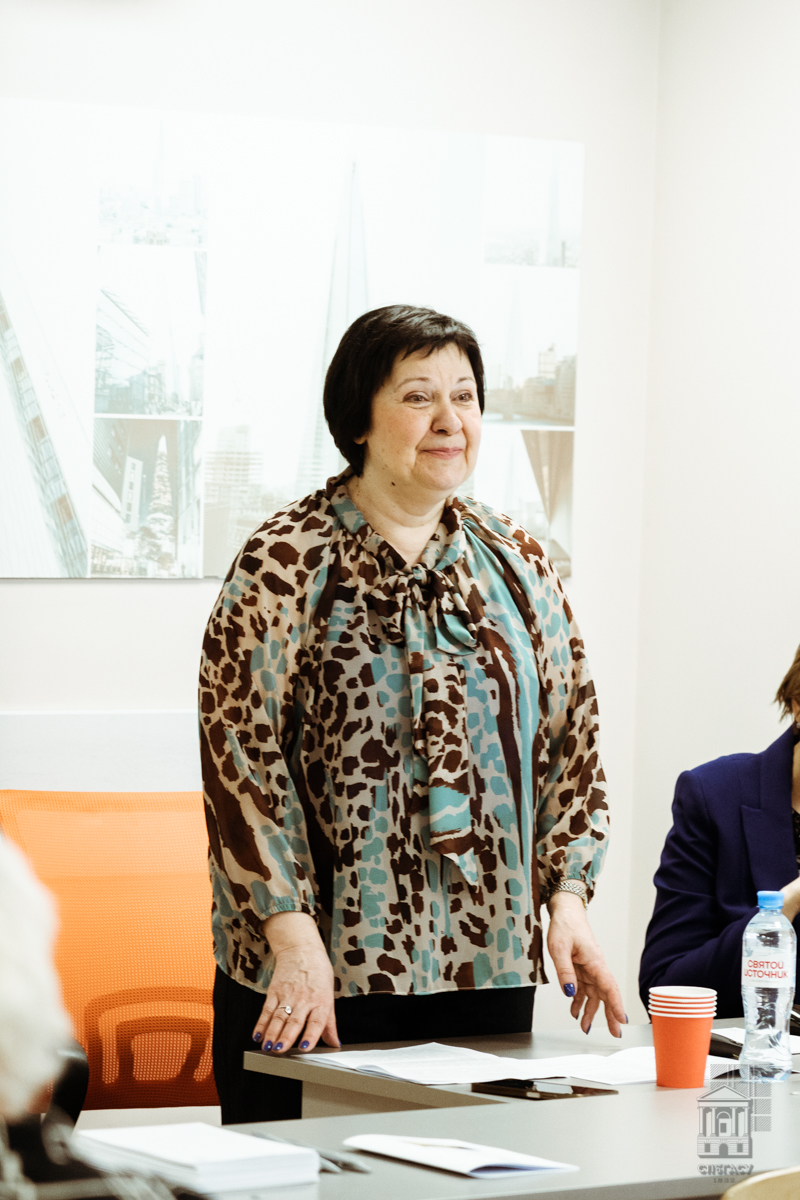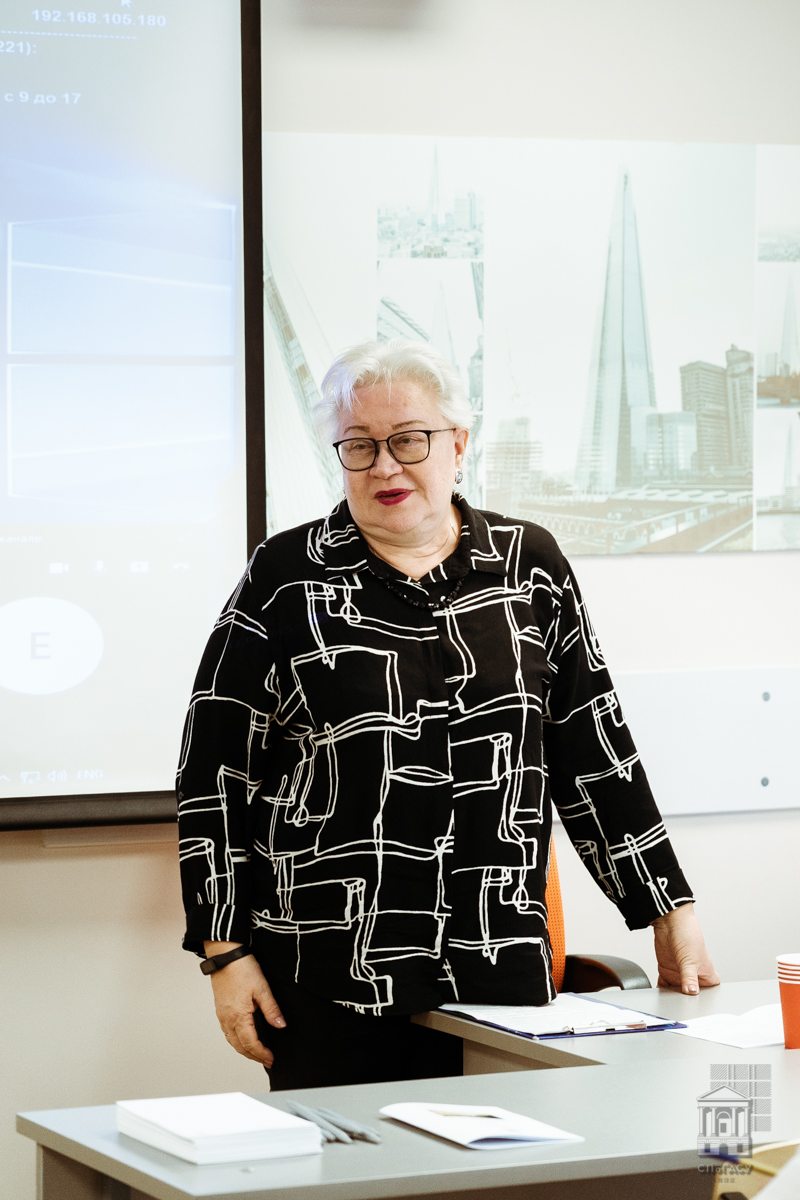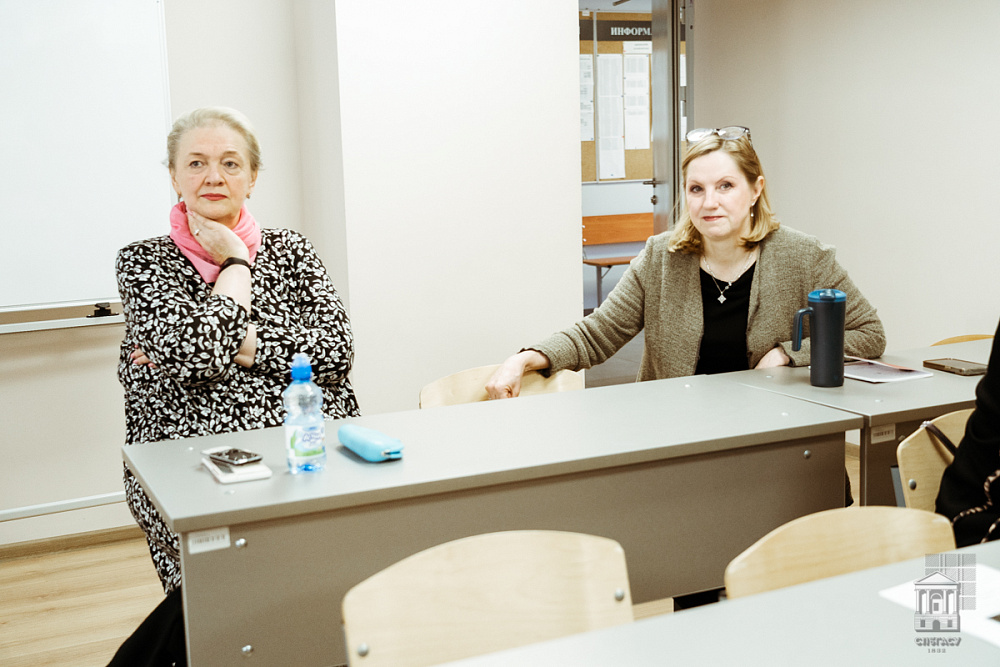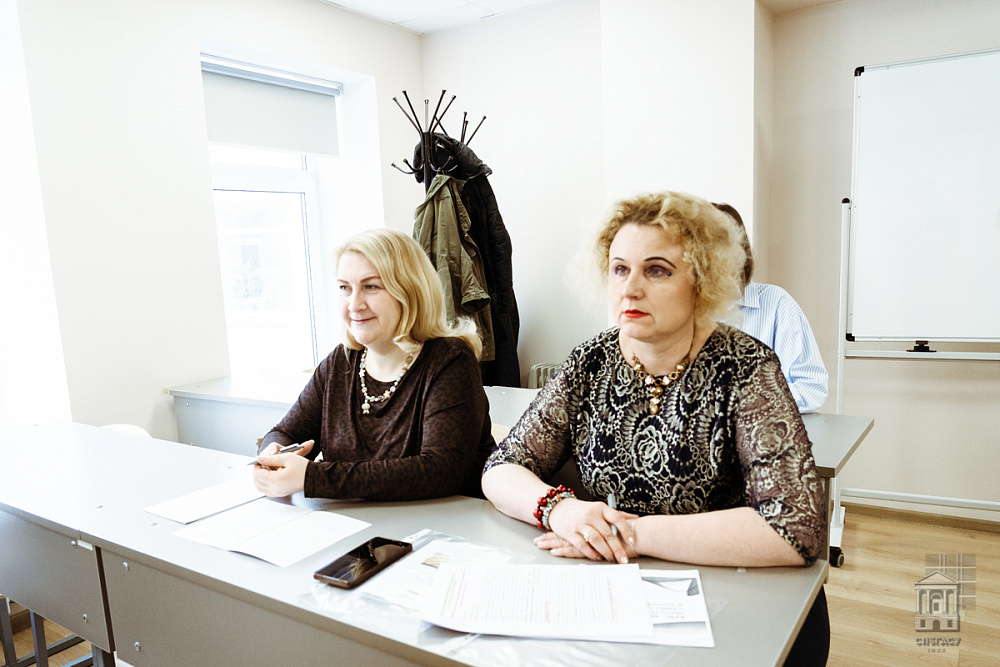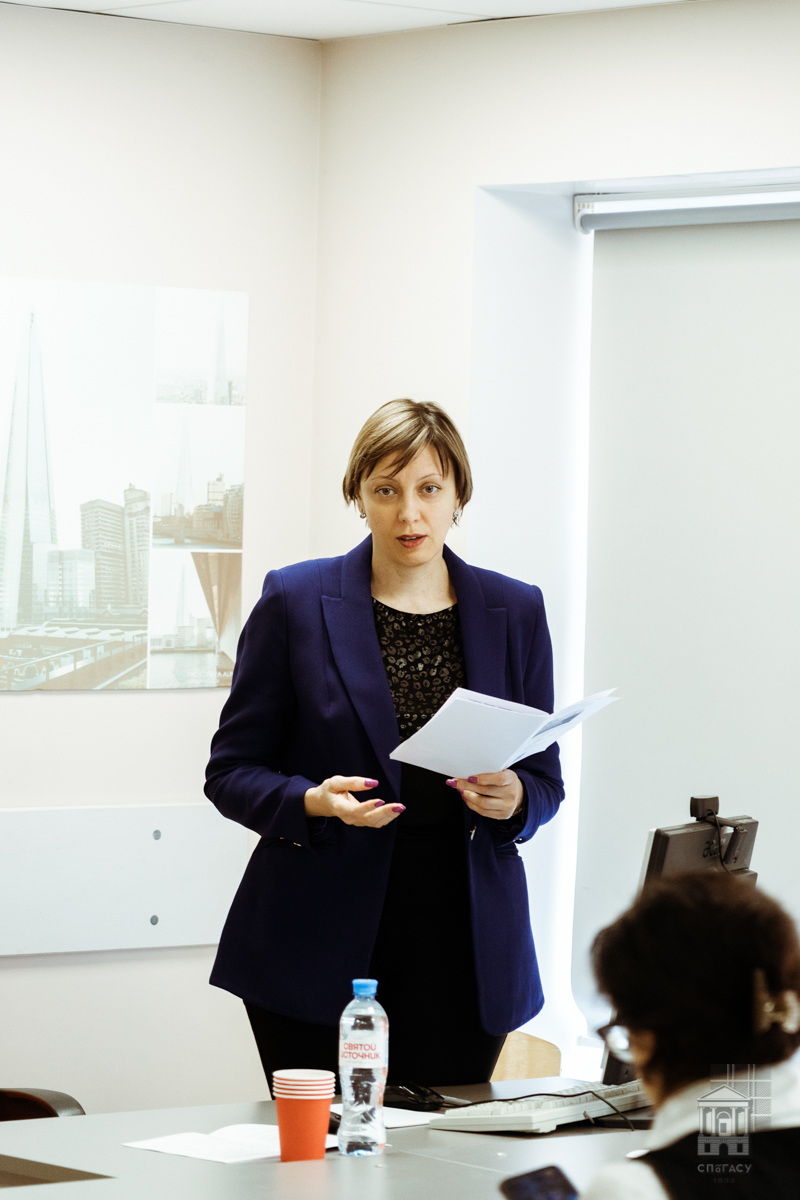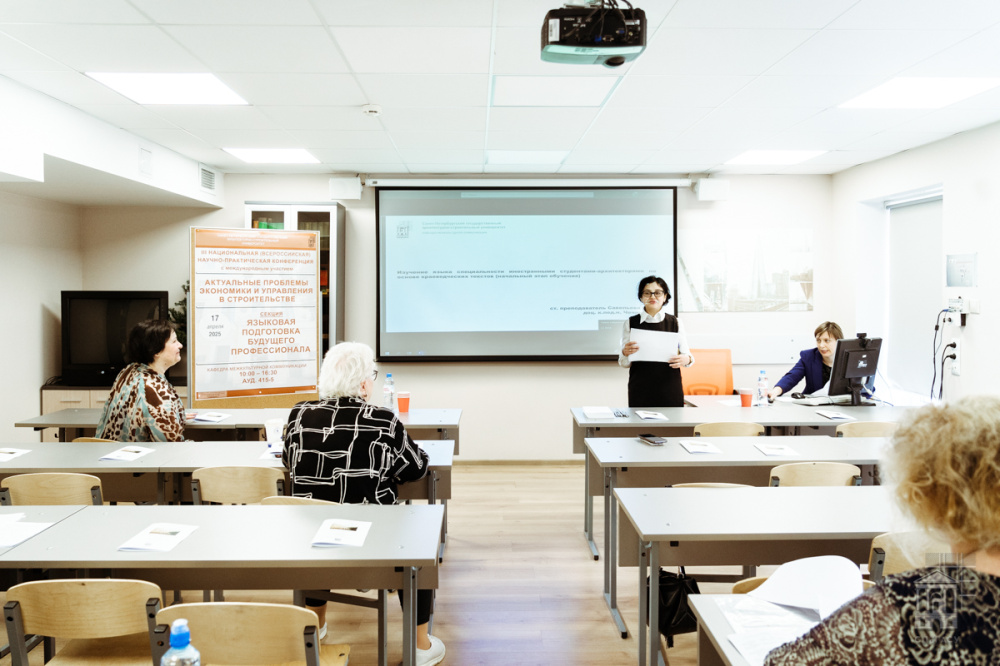 Irina Chechik's presentation
Irina Chechik's presentation
As part of the III National (All-Russian) scientific and practical conference with international participation “Current issues of economics and management in construction”, the SPbGASU Department of Intercultural Communication organized and held a section “Language training of future professionals” on 17 April.
In her welcoming speech, the Head of the Department of Intercultural Communication Elena Selezneva emphasized the importance of including the section in the work of the university conference, since knowledge of foreign languages, understanding of cultural features, and the ability to effectively interact with representatives of other cultures are becoming key competencies for specialists in any field. A separate greeting was addressed to young scientists participating in the section: students, postgraduates.
Professor at the Department of Intercultural Communication Elena Chirkova shared her thoughts on the importance of live communication: “In a world where digital technologies are rapidly changing the usual forms of interaction, it is live communication that remains the foundation on which true understanding and deep mutual perception are built.” The professor is confident that live communication is not just an exchange of information. It is an exchange of emotions, cultural features and unique experience that cannot be fully conveyed through screens and virtual platforms. This is especially true for learning foreign languages - a process that requires not only knowledge, but also live interaction, immersion in the cultural context and direct dialogue with teachers or native speakers. With the availability of online courses and programs for additional practice, it is live language learning, including dialogues, discussions, exchange of experience and cultural characteristics, that forms real language competence.
Participants from St Petersburg, Nizhny Novgorod, Omsk, Tyumen, Bishkek (Kyrgyzstan) and others discussed the perfection of language training strategies, improving the quality of teaching foreign languages, including Russian as a foreign language. Particular attention was paid to the introduction of new technologies, primarily artificial intelligence, to solve current problems of language education.
Associate Professor at the Department of Intercultural Communication Irina Chechik and Senior Lecturer at the Department Natalia Savelyeva prepared a report "Study of the language of the specialty by foreign students-architects based on local history texts (initial stage of training)". In her speech Irina Chechik noted the enthusiasm with which students-architects perceive local history texts containing information about the architectural monuments of St Petersburg. Irina Vladimirovna gave examples of such texts from a new study guide developed by teachers of Russian as a foreign language of the Department of Intercultural Communication.
In this textbook, the authors chose popular science texts. Grammar is given through constructions (models), which are practiced in exercises. Each text contains information about the history of the object, archival photographs. Students are asked to compare different architectural monuments, which gives additional opportunities to include speech activity.
Senior Lecturer at the Department of Intercultural Communication Valeria Ryabkova presented a report on "The role of generative artificial intelligence in language training of university students". Valeria Valeryevna noted the explosive growth of interest in this topic. Artificial intelligence in education opens up many new opportunities: it allows developing and implementing teaching methods for specific disciplines, simulating speech and thinking activity, implementing automated control and providing feedback. Valeria Ryabkova reviewed specialized and universal generative chatbots and gave an example of a task from her textbook on English for forensic experts using artificial intelligence. According to the speaker, specific pedagogical technologies for the use of generative artificial intelligence are not yet available, and we are at the stage of analyzing the accumulated experience.
"Artificial intelligence has a certain didactic potential, but requires careful control from teachers. First of all, we ourselves must learn to use it and teach our students to use it," Valeria Ryabkova summed up.
We are thankful to all section participants for their fruitful work and exchange of valuable experience!







